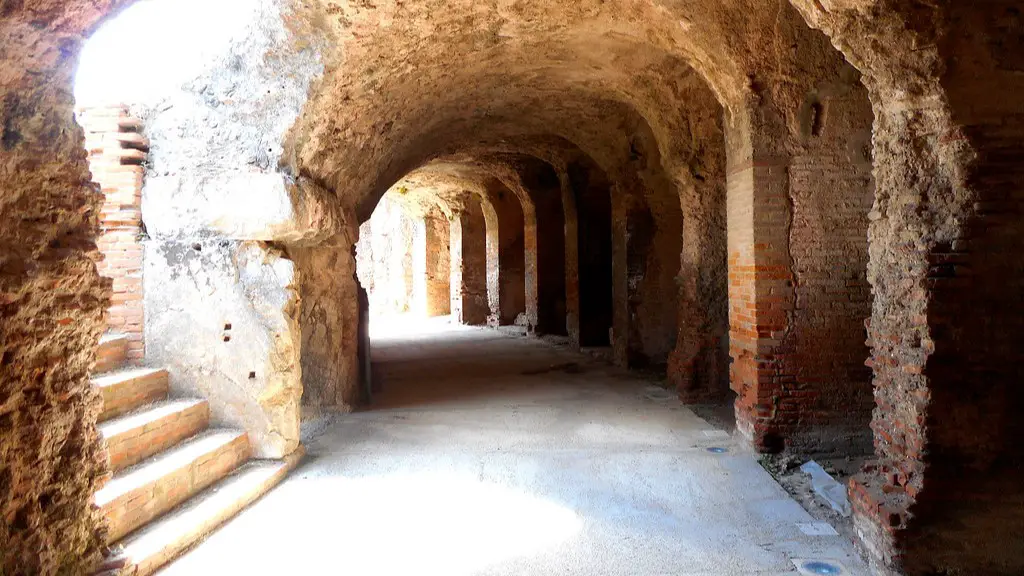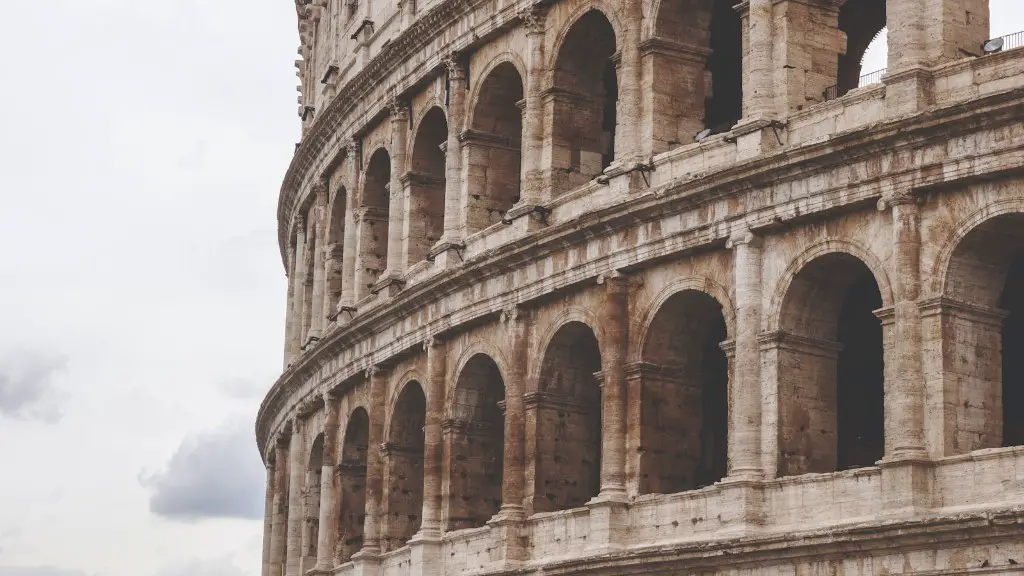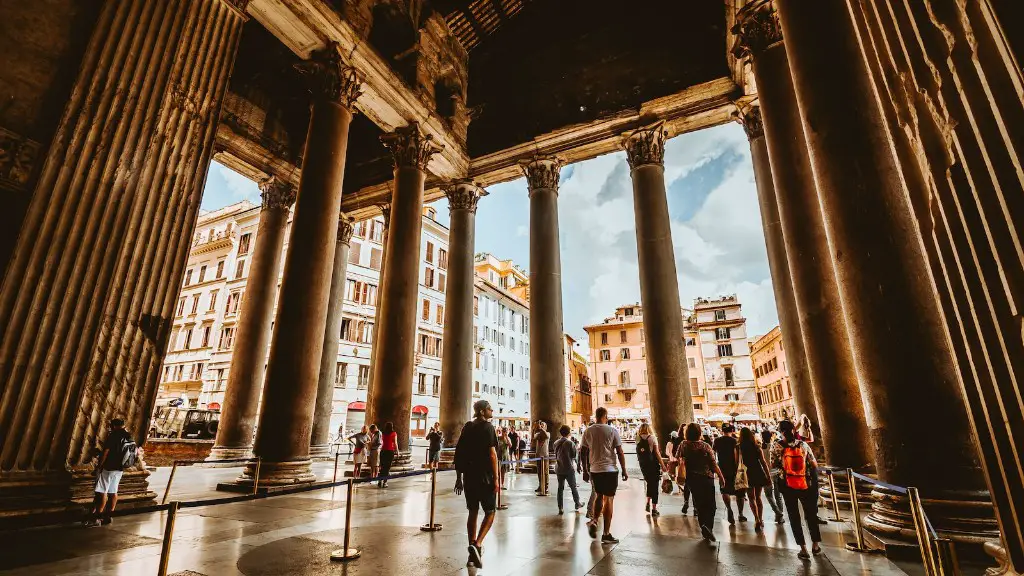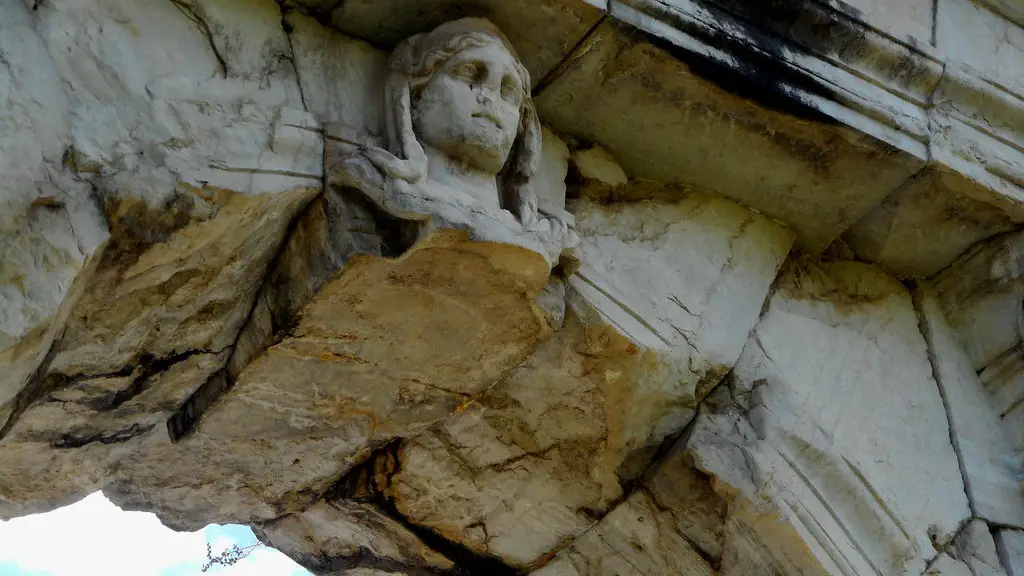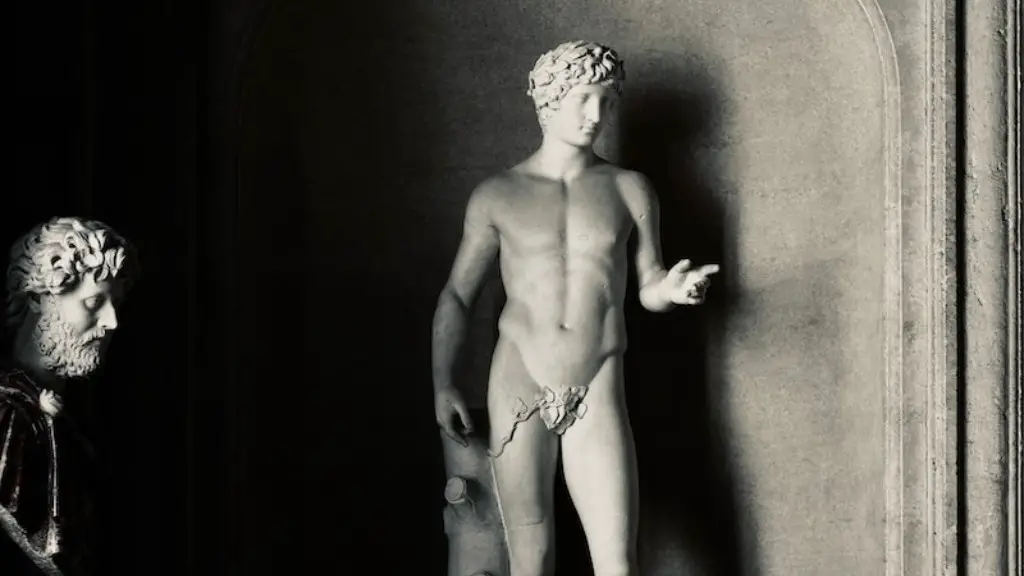Rome – a legendary place in the world’s history that has inspired generations. Many planets revolve around this great empire and its influence, but one that remains reasonable yet important is that of the everyday life of its plebeians (lower class citizens).
Ancient Rome was a thriving society and it was divided into upper and lower classes, the Patricians and Plebeians respectively. Patricians were the wealthy and influential upper class, while plebeians were the lower class citizens and were often working class. They were farmers, artisans and merchants, living in the poorer working class districts where rents were low. They were the most vulnerable members of the Roman society and had the least social, political and economic rights.
The lifestyle of these people was considerably different from the Patricians. First of all, the government no longer provided the same level of public resources, such as public baths and wells, that were enjoyed by the Patricians. This meant that the plebeians had to make their own arrangements. They had to find their own water and women went out to fetch it. Toilets were inadequate and baths were only available through private clubs. Food was another issue and the lower classes had to purchase whatever they could get their hands on, making meal times monotonous and plain. Small portions of bread and a few vegetables were the common diet.
Work was manual, menial and hard. Many of the less privileged members of the lower class had to leave town in search of day-labour or take on temporary contracts for landowners. In such cases, each laborer would make only one to two denari a day. Famine and economic downturns meant that employment was scarce and money was hard to come by. Plebeians were too poor to own slaves and had to toil away in their farms, shops or narrow alleyways.
In terms of their homes, the plebeians lived in cramped and primitive dwellings. These were typically dark, single-story homes with no insulation or other amenities such as hot and cold running water, central heating and toilets. Privacy was a luxury, as homes were situated so close to each other. Many plebeians lived in extended family homes, with grandparents, parents, uncles, aunties, siblings and their families all living together.
The life of plebeians in Ancient Rome was rife with uncertainty and struggle. The daily life of its citizens was marred by privation and political inequality. There were very few opportunities for advancement and any advances were usually limited by the class in which they were born.
Education Opportunities
Education was not available to the plebeians in Ancient Rome. The wealthy and privileged Patricians went to private schools or had tutors in the home, while the plebeians only had access to a few public schools funded by the state. These public schools were not sufficient to respond to the needs of the plebeians and offered very basic primary level of education. Additionally, the Roman government did not allow the plebeians to become lawyers, officials or hold public office, so no further education was available to them. Most plebeians were restricted to day labour and manual labour.
Thus, there was no hope for those in the lower classes to gain access to higher education, leaving them trapped in a cycle of poverty and bleak prospects. As a result of the lack of education, many plebeians turned to alcohol and other substances as a means of escape.
This lack of education and opportunities led to a lack of knowledge and the perpetuation of superstitions and the acceptance of lives predetermined by fate and religious responsibilities. The plebeians were indoctrinated with the belief that their lives were fixed and outside of their control which only further impoverished them.
Limited Social Mobility
The Roman society of ancient times was highly stratified, and it was extremely difficult for anyone to progress from the plebeian class to the Patrician class. This was especially true for the plebeians who were born into the lower classes and had few options for upward social and economic mobility. The class divide was so pronounced that it would take generations for a plebeian family to finally ascend to the Patrician class.
Since the plebeians had no voice in matters of government, taxation and legal matters, they had no control over their destinies. This sense of helplessness and a lack of power only increased the social and economic disenfranchisement of the plebeians, leaving them in a state of poverty and instability.
The level of poverty and classism that existed in Roman society meant that the plebeians had to struggle hard to make ends meet and to survive. They had no other means of gaining resources and were, therefore, completely reliant on the wealthy and privileged upper classes for sustenance, which was often limited or unfair.
Family Life
The family was a sacred institution in the Roman society and, for the plebeians, it was the cornerstone of their existence. Women were the primary caregivers while men worked outside the home and supervised their children. Women were not allowed to own property and had very limited rights but were nevertheless expected to fulfil their wifely, motherly and daughterly duties.
In an era of limited resources, the family unit was essential and the plebeians relied on each other for support and aid. During times of famine or plague, extended families were a safety net of sorts that helped survivors keep afloat.
Family and kinship ties were of great importance to the plebeians. For example, if a family member was injured or became ill and was unable to work, then responsibility for that individual’s well-being fell to the family and other kin.
Families inAncient Rome provided stability and comfort in a hostile environment, although it was generated from meager resources. This was especially true for women, since they did not have access to the same rights and resources as men.
Religiosity
Religion was an important part of everyday life for the plebeians in ancient Rome. Although their rights were limited, they remained loyal to their gods and goddesses and believed that appeasing them would bring them prosperity and protection. In fact, ritualistic practices and belief in superstitions were a form of comfort during difficult times.
The plebeians venerated the gods such as Jupiter, Mars and Diana, to whom they would offer sacrifices and prayers. They were also deeply religious in a spiritual sense and often led their lives in accordance with ancient myths and religious teachings.
In addition to appeasing the gods, the plebeians held large annual festivals to celebrate various gods and goddesses, as well as their own personal triumphs. These festivals provided them with an opportunity to come together, worship their gods, and honor the people and events that meant something special to them. These festivals were the highlights of their lives and provided the majority of the plebeians with a respite from their mundane lives.
Social Change
Social change took place in Ancient Rome, although it was slow and hard-fought. Slowly, the plebeians gained a greater say in their destinies and eventually secured more rights and privileges for themselves. In 495 BC, the Plebeians persuaded the Patrician leaders to recognize their rights and created a council for them known as the Concillius Plebis. This new body ensured that the plebeian voice was heard in the Roman government and made sure that the plebeians could exercise their freedom.
The plebeians also gained economic rights through the Twelve Tables of Rome, which established a set of laws for the Roman citizens and guaranteed fair treatment for both Patricians and Plebeians. This was a major step forward for the plebeians, as it enabled them to own lands, manage businesses and take credit. For women, however, very little change was achieved, and they continued to be treated as second-class citizens.
Despite the small gains they were able to make, life in ancient Rome remained hard for the patricians and, particularly, the plebeians. They lived in a highly stratified society and were limited in their prospects and resources. Nevertheless, they did their best and worked hard to make their lives better while trying to stay true to their gods and their culture. The plebeians of ancient Rome are a testament to human resilience and determination, even amidst the most difficult conditions.
